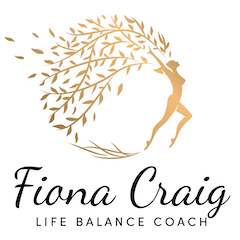Roughly seven years ago, I coached a client with a wide range of work issues from fear of losing her job to alienating herself from her work colleagues.
At times she would compare herself to others, feel insecure, or seek attention through over-committing on work projects. Her heightened state of anxiety lead to envy, and an obsession with workplace gossip.
Whilst I had heard of the term fear of missing out (FOMO), I had always associated it to twenty somethings. I confess I was stereotyping a generation worried they would miss some social media updates from friends or influencers.
What I’ve learnt over the years is that everyone can feel a certain level of FOMO and at different stages of our lives.
WHAT IS FOMO?
It’s a feeling that you are missing out on something that you believe to be fundamentally important. To put in another way, it’s the fear that what you are doing right now means you are losing the chance to engage in another experience that could be more fun or meaningful.
It triggers an insane level of over-thinking and you start to worry. You want to be doing two things at once, be at two places at once, know all the conversations happening NOW or be everywhere just to make sure. It’s a preoccupation or obsession to gaining higher and higher levels of satisfaction or personal gratification.
Makes sense?
Last week I experienced my own FOMO with regards to keeping up with the latest news and updates to various paid membership sites of psychic healers, ascension teachers, world politics and Covid-19.
I had massive amounts of overwhelm which hit me like a truck. I felt this mounting anxiety and my body shook. I just couldn’t keep up in real time. I was so off balance that I had to step back, check in with myself, get to the truth and then take action.
The questions I asked myself are the exact questions I asked my client. So if you’re suffering from FOMO you can ask yourself too.
What do you mostly FOMO about?
When do you feel FOMO most?
What happens when you do miss out? Does that relate to childhood experiences?
When you miss out, what worries you most?
If you didn’t have FOMO would you still have work/personal guilt vice versa?
HOW TO START MINIMISING YOUR FOMO
If you feel you’re in the grip of FOMO, don’t panic, well done for recognising that it’s creeping into your daily life. Whatever your FOMO specifically relates to e.g. workplace, personal relationships, or social media, I would try to incorporate the following practises to bring your yourself back to balance.
- Practise Discernment: Be willing to say “no” to more things. This will provide you with more time to devote to those experiences that are more deeply rewarding. Remember: More isn’t necessarily better. Focus on the kinds of things that enhance the quality not the quantity of your experiences.
- Slow Down: Take time to linger over pleasurable experiences rather than rushing through them in quest of the next thrill. Really smell the coffee (and the roses and the other delightful scents that you encounter). Make an effort to slow down and enjoy the simple things in life.
- Accept you can’t have it all: Prioritise certain activities. Accepting the essential futility of trying to fulfil every desire we have is much wiser than indulging all of our impulses for gratification. This enables us to let go of others and the need to know.
- Focus on what you have: Instead of chasing fantasies we believe will fulfil us, we can cultivate gratitude. It is harder to feel as if you lack the things you need in life when you are focused on the abundance you already have.
- Enjoy the process: Integrating these practices into your life can be a labor of love and can be experienced as a blessing and an opportunity, rather than a series of obligations. Let yourself take pleasure in the heightened level of relaxation and ease that comes into your life as you gift yourself with these experiences. It’s not just you—everyone in your life that benefits from losing FOMO!
So from a more practical perspective, I left a few Facebook groups, took off alerts and email notifications to numerous social media platforms, and have decided to take a break from all Patreon memberships.
There, I’ve found my balance again. Now I can focus on coaching the flurry of new clients that started this week, continue with my son’s driving lessons and return to my daily yoga routine.
Images by Victoria Heath, Unsplash
 Fiona Craig is a life coach, psychotherapist, business mentor, and published author of the award winning self-help book, “Stuck in a Rut – How to rescue yourself & live your truth” helping women remove the fear, worry and guilt to confidently take the steps towards creating the life they want to live.
Fiona Craig is a life coach, psychotherapist, business mentor, and published author of the award winning self-help book, “Stuck in a Rut – How to rescue yourself & live your truth” helping women remove the fear, worry and guilt to confidently take the steps towards creating the life they want to live.
Fiona has been interviewed by The Australian Women’s Weekly, Women’s Fitness Magazine and The New Daily and written articles for Collective Magazine, Herald Sun Melbourne, Sunday Life Magazine, Career One, I Am Woman Magazine, plus Mouths Of Mums and other online publications. You can learn more about working with Fiona at www.lifebalancecoach.com.au or call 0405 433 217.














